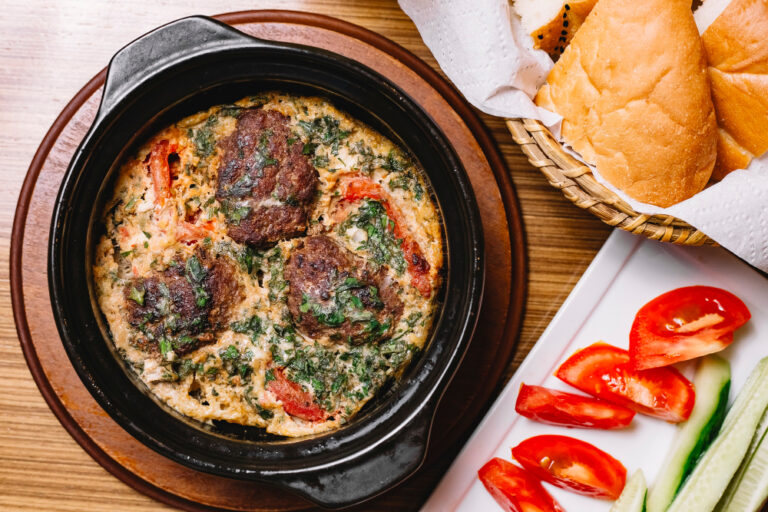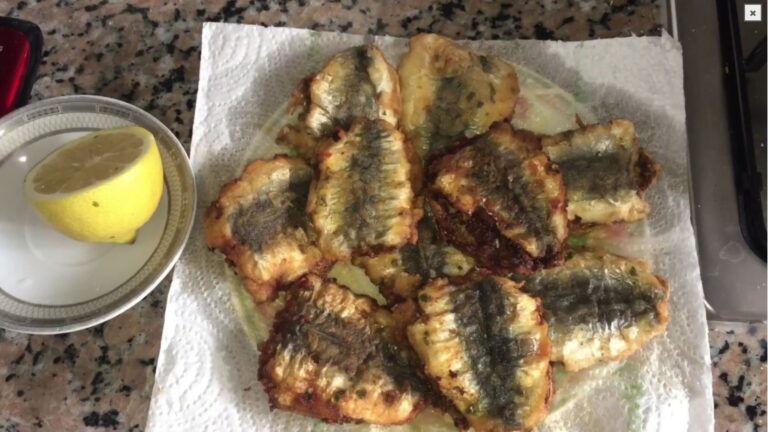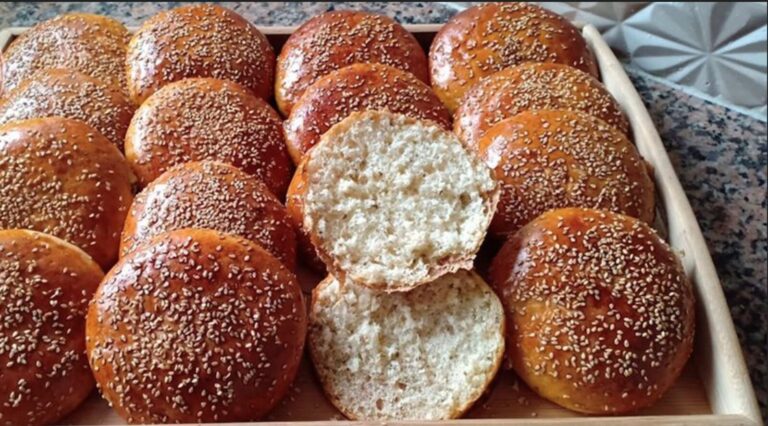
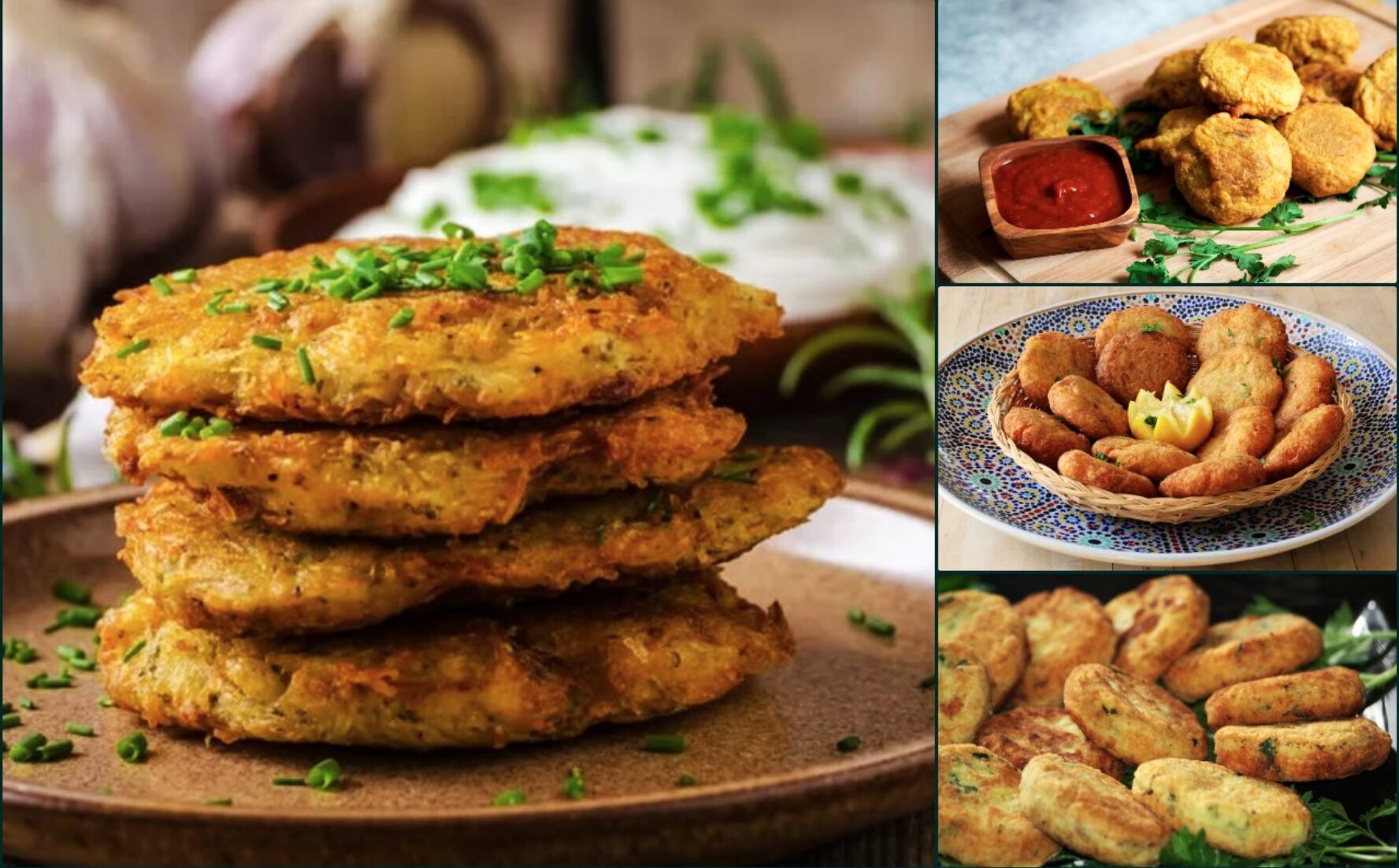
Traveling through Morocco is as much about the flavors as it is about the landscapes, cities, and culture. One dish that stands out for both locals and visitors is Maakouda Moroccan–Potato Fritters Recipe. These golden, crispy patties are a staple of Moroccan street food, often enjoyed on bustling city corners, in lively medinas, or paired with a warm glass of mint tea. More than just a snack, Maakouda embodies Moroccan hospitality and culinary creativity.
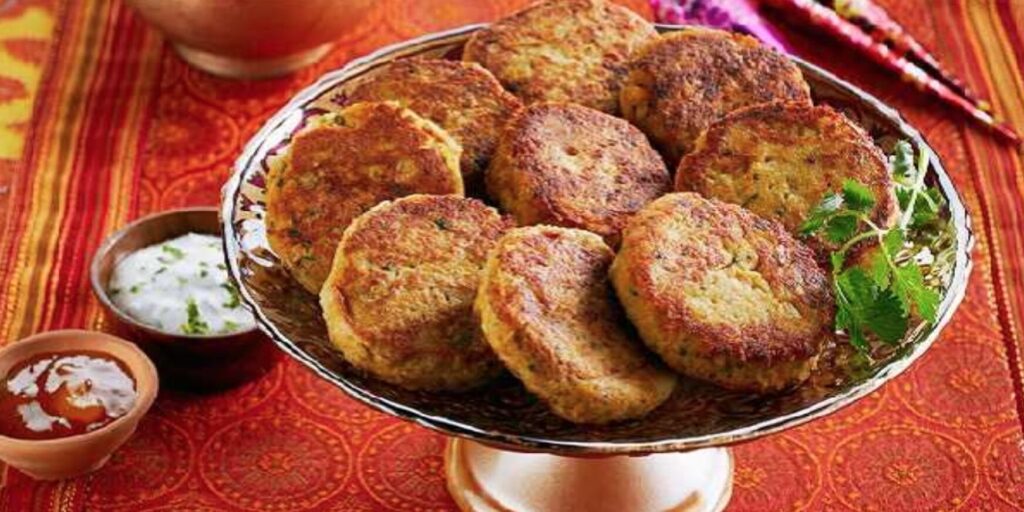
In this guide, we’ll explore not only the recipe but also the cultural significance of Maakouda, where to enjoy it in Morocco, and why it deserves a spot on every traveler’s must-try list.
The Charm of Maakouda in Morocco
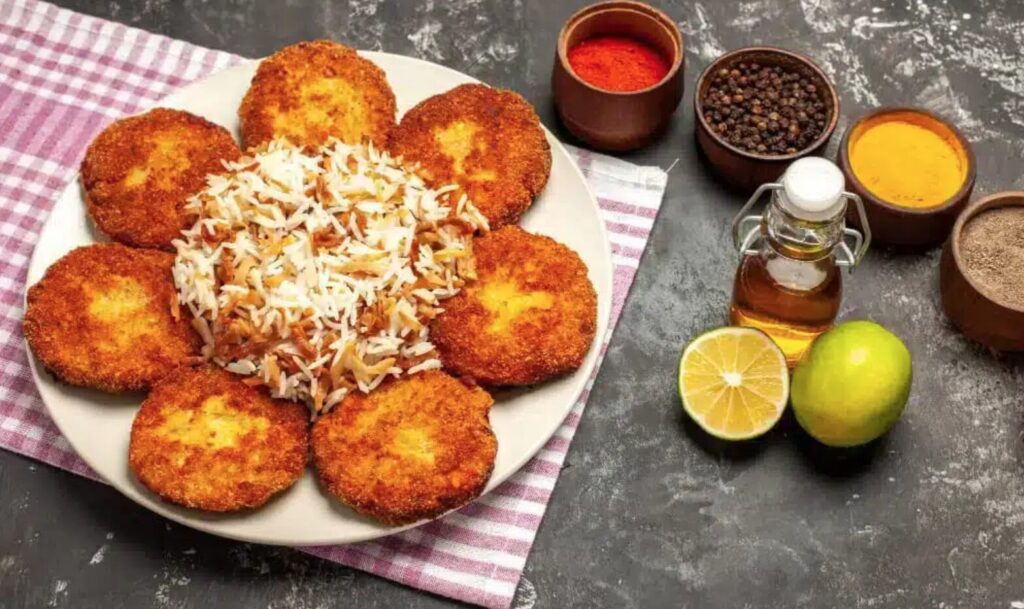
Maakouda is a fried potato fritter made with mashed potatoes, eggs, parsley, and spices, then pan-fried until golden and crispy. While humble in ingredients, this dish holds a special place in Moroccan daily life.
You’ll find it across cities like Fes, Marrakech, and Tangier, usually sold by street vendors for just a few dirhams. For Moroccans, it’s a comfort food—simple, affordable, and deeply nostalgic. For travelers, it’s an accessible way to connect with Moroccan flavors without the formality of a restaurant.
Maakouda also tells a story of Morocco’s culinary fusion. Influenced by Mediterranean and North African traditions, the fritter shares roots with Spanish croquettes while being distinctly Moroccan in its seasoning and presentation.
Where to Enjoy Maakouda in Morocco
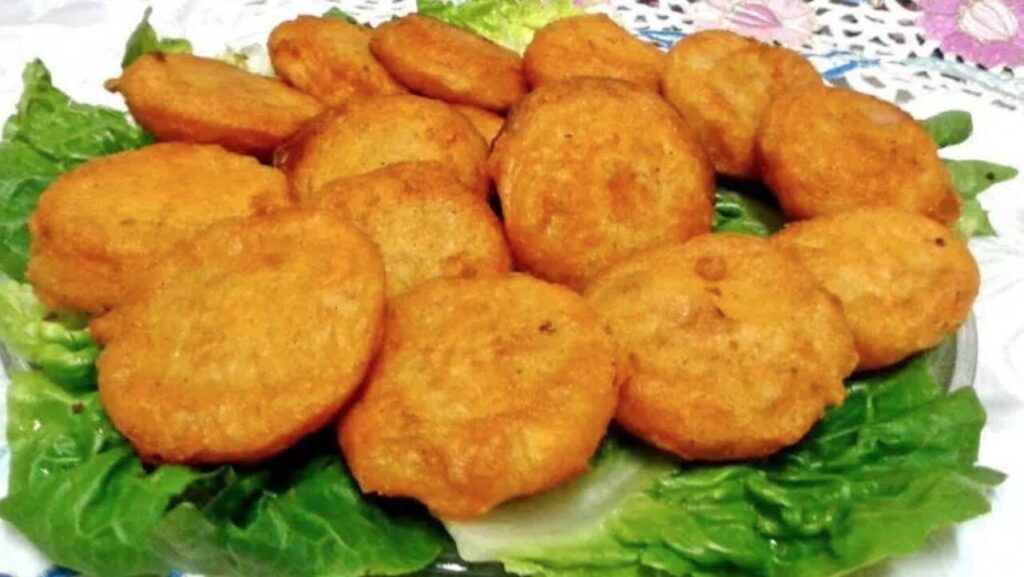
Street Food Markets
The best place to try Maakouda is in bustling street markets. In Marrakech’s famous Jemaa el-Fnaa square, vendors fry Maakouda right in front of you, filling the air with the scent of cumin and garlic. It’s usually served in fresh bread as a sandwich, often drizzled with harissa sauce for extra heat.
Local Cafés and Eateries
Small neighborhood cafés, especially in Casablanca and Rabat, often feature Maakouda as part of their lunchtime offerings. Pair it with Moroccan lentil soup (harira) or a cup of sweet mint tea for a true local experience.
Homemade Versions
If you’re lucky enough to be invited to a Moroccan home, chances are you’ll encounter Maakouda freshly made in the kitchen. Every family adds its own twist: some prefer more garlic, others add turmeric, while a few serve it alongside olives and fresh salads.
Travel Tips and Cultural Insights
- Affordable and Filling: A Maakouda sandwich costs around 5–10 MAD, making it a perfect budget-friendly bite for travelers.
- Timing Matters: Street vendors often prepare Maakouda in the late afternoon or evening, when the city squares come alive.
- Respect Local Customs: While street food is casual, it’s polite to greet the vendor with “Salam alaykum” before ordering.
- Pairing Ideas: Maakouda goes wonderfully with Moroccan mint tea or a cold glass of “raib” (a yogurt drink often sold alongside street food).
- Vegetarian Friendly: Maakouda is a great option for vegetarians exploring Moroccan cuisine, though always confirm the cooking oil used.
Stories From Travelers
One traveler recalled stumbling upon Maakouda in Chefchaouen, the famous Blue City. After hours of walking through winding alleyways, she stopped at a small stand where the vendor offered her a hot Maakouda sandwich. “It was the best meal of my trip,” she said, “simple but unforgettable.”
Another story comes from a couple in Meknes, who joined a local cooking class. Learning how to prepare Maakouda gave them a hands-on experience of Moroccan food culture. They later recreated the dish back home, bringing a piece of Morocco into their own kitchen.
These stories highlight that Maakouda isn’t just food—it’s an experience, a memory made on Moroccan streets, and a connection between people and place.
Seasonal Insights and Recommendations
- Ramadan Treat: During the holy month of Ramadan, Maakouda often makes its way onto iftar tables, enjoyed after a day of fasting. It’s especially popular when paired with harira soup.
- Summer Travels: In hot months, Maakouda is often enjoyed with fresh salads, tomatoes, and cucumbers to balance the richness of the fritters.
- Winter Warmth: In cooler weather, pair Maakouda with lentils, beans, or a hearty soup to create a warming Moroccan comfort meal.
For travelers planning trips, consider timing your visit around Moroccan food festivals, where Maakouda and other traditional dishes are showcased with pride.
FAQ About Maakouda Moroccan–Potato Fritters Recipe
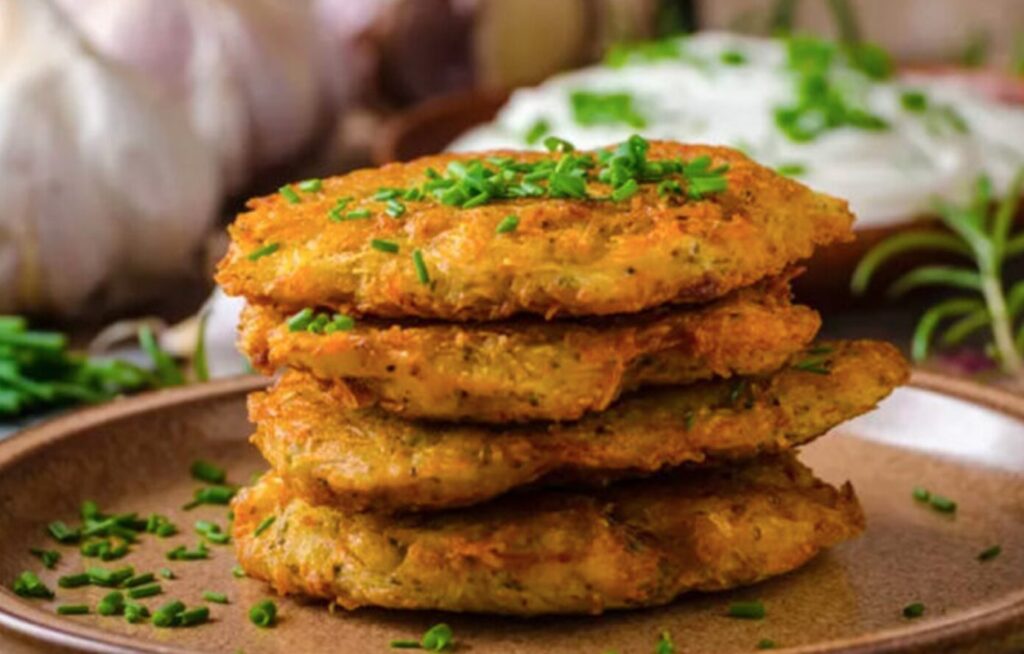
What is Maakouda made of?
Maakouda is primarily made from mashed potatoes, eggs, parsley, garlic, and spices like cumin and paprika. The mixture is shaped into patties and fried until golden.
Where can I try Maakouda in Morocco?
You can find Maakouda in most Moroccan cities, especially in street food stalls, local cafés, and markets such as Jemaa el-Fnaa in Marrakech or medinas in Fes.
Is Maakouda spicy?
Not by default. The fritters are savory with mild spices, but they’re often served with harissa or spicy sauces if you want extra heat.
Can I make Maakouda at home?
Yes! Maakouda is easy to make at home. All you need are boiled potatoes, herbs, spices, and oil for frying. Many travelers recreate it after tasting it in Morocco.
Is Maakouda vegetarian?
Yes, Maakouda is vegetarian, though you should check if the frying oil is shared with non-vegetarian items when buying from street vendors.
Conclusion
Maakouda Moroccan – Potato Fritters Recipe is more than just a dish; it’s a symbol of Moroccan culture, hospitality, and the everyday joy of street food. Whether you discover it in a Marrakech market, during Ramadan festivities, or at a humble café in Tangier, Maakouda leaves a lasting impression on both taste buds and memories.
So, when planning your Moroccan journey, make room for Maakouda on your food bucket list. It’s affordable, delicious, and deeply woven into the country’s culinary traditions. Ready to taste Morocco? Start with Maakouda, and let the flavors guide you deeper into the magic of this unforgettable destination.

